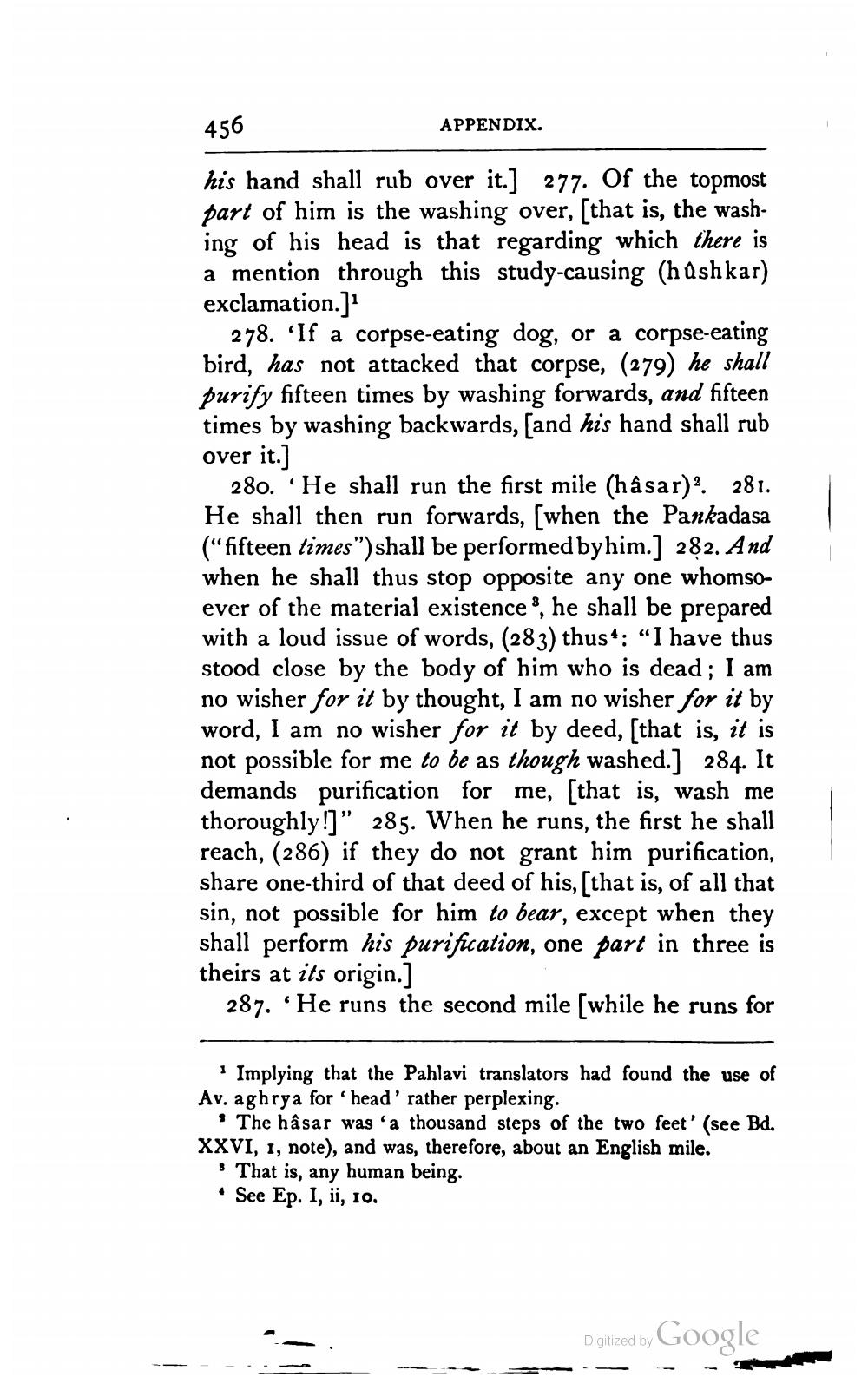________________
456
APPENDIX.
his hand shall rub over it.] 277. Of the topmost part of him is the washing over, [that is, the washing of his head is that regarding which there is a mention through this study-causing (hashkar) exclamation.]
278. 'If a corpse-eating dog, or a corpse-eating bird, has not attacked that corpse, (279) he shall purify fifteen times by washing forwards, and fifteen times by washing backwards, (and his hand shall rub over it.]
280. He shall run the first mile (hâsar)? 281. He shall then run forwards, (when the Pankadasa ("fifteen times") shall be performed byhim.] 282. And when he shall thus stop opposite any one whomsoever of the material existence 3, he shall be prepared with a loud issue of words, (283) thust: "I have thus stood close by the body of him who is dead; I am no wisher for it by thought, I am no wisher for it by word, I am no wisher for it by deed, (that is, it is not possible for me to be as though washed.] 284. It demands purification for me, [that is, wash me thoroughly!]" 285. When he runs, the first he shall reach, (286) if they do not grant him purification, share one-third of that deed of his, (that is, of all that sin, not possible for him to bear, except when they shall perform his purification, one part in three is theirs at its origin.]
287. “He runs the second mile (while he runs for
* Implying that the Pahlavi translators had found the use of Av. aghrya for 'head' rather perplexing.
• The hâsar was 'a thousand steps of the two feet' (see Bd. XXVI, 1, note), and was, therefore, about an English mile.
$ That is, any human being. • See Ep. I, ii, 10.
Digitized by Google




